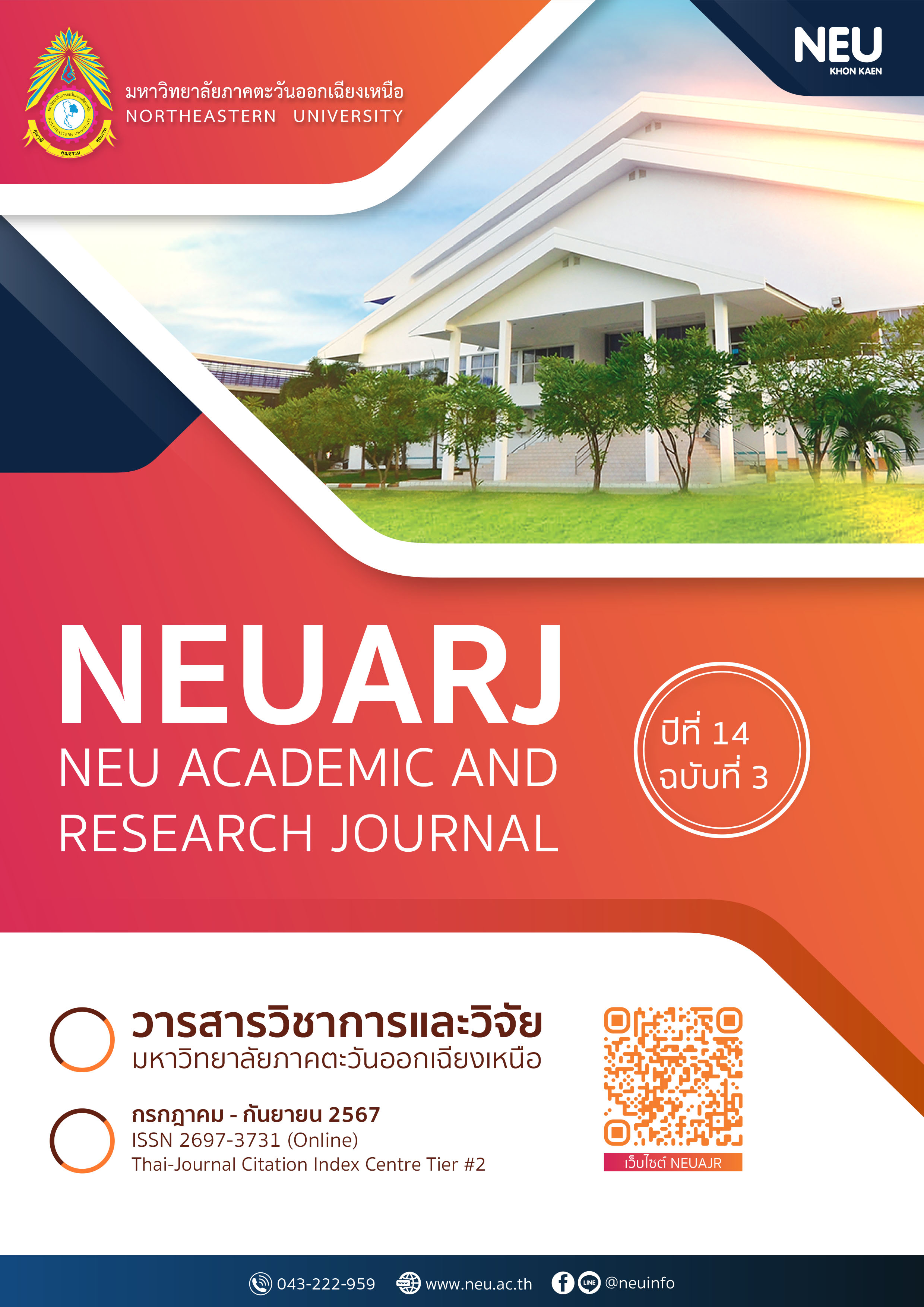นัยยะทางวิชาการของการปฏิรูปบริการสาธารณะ
คำสำคัญ:
การปฏิรูป, การปฏิรูปบริการสาธารณะ, การบริหารงานภาครัฐบทคัดย่อ
การปฏิรูปบริการสาธารณะถูกกล่าวถึงอย่างแพร่หลายทางการบริหารงานภาครัฐแต่นัยยะใดถือว่าเป็นการปฏิรูปบริการสาธารณะอย่างแท้จริง บทความวิชาการนี้จึงมีวัตถุประสงค์ เพื่อศึกษาการปฏิรูปบริการสาธารณะ หลักการปฏิรูปบริการสาธารณะ รากฐานแรงกดดันการปฏิรูปบริการสาธารณะ ลักษณะการปฏิรูปบริการสาธารณะและปัจจัยทำให้เกิดการปฏิรูปบริการสาธารณะ การศึกษาใช้การวิเคราะห์เอกสารทางวิชาการ ที่มีการเผยแพร่ระดับนานาชาติ โดยเฉพาะบทความวิชาการ บทความวิจัยและหนังสือเป็นหลัก การศึกษา พบว่า การปฏิรูปบริการสาธารณะมีหลักการสำคัญเกี่ยวกับการปรับปรุงขีดความสามารถ ของสถาบันสาธารณะอย่างต่อเนื่อง โดยมีรูปแบบการเปลี่ยนแปลงหลากหลายแตกต่างกัน อาทิ การเปลี่ยนแปลงอย่างค่อยเป็นค่อยไป หรือการเปลี่ยนแปลงอย่างถอนรากถอนโคน ซึ่งการปฏิรูปบริการสาธารณะถือเป็นเครื่องมือการบริหารงานภาครัฐที่มีรากฐานแรงกดดันสำคัญมาจากบรรดาแนวคิดการบริหารงานภาครัฐใหม่ อาทิ การจัดการปกครอง การจัดการภาครัฐแนวใหม่และการบริการสาธารณะ ซึ่งเป็นแนวคิดที่เข้ามาอิทธิพลต่อการบริหารงานภาครัฐแบบดั้งเดิม โดยทั้งลักษณะการปฏิรูปบริการสาธารณะและรากฐานแรงกดดันการปฏิรูปบริการสาธารณะ มีข้อค้นพบทิศทางเดียวกับการศึกษาในส่วนกรณีศึกษาการปฏิรูปบริการสาธารณะ และสุดท้ายการศึกษาปัจจัยทำให้เกิดการปฏิรูปบริการสาธารณะ พบว่า ระบบการเมือง ความเข้มแข็งของระบบพรรคการเมือง นักการเมืองวัยหนุ่มสาว แรงกดดันทางเศรษฐกิจและสังคม ความคิดใหม่ทางการบริหารและการมีส่วนร่วม ถือเป็นปัจจัยที่มีอิทธิพล
เอกสารอ้างอิง
Afegbua, S. I. and Ejalonibu, G. L. (2015). Emerging Issues in Public Sector Reforms in Africa: An Assessment of Ghana and Nigeria. Africa’s Public Service Delivery and Performance Review, 3(3), 95-126.
African Development Bank (2005). African Development Report 2005: Public Sector Management in Africa. African Development Bank.
Bellé, N. and Ongaro, E. (2014). NPM, Administrative Reforms and Public Service Motivation: Improving the Dialogue between Research Agendas. International Review of Administrative Sciences, 80(2), 382–400.
Bezzina, F., Camilleri, E. and Marmarà, V. (2021). Public Service Reforms in a Small Island State: The Case of Malta. Springer.
Bourgault, J. and Van Dorpe, K. (2013). Managerial Reforms, Public Service Bargains and Top Civil Servant Identity. International Review of Administrative Sciences, 79(1), 49–70.
Brinkerhoff, D. W. and Wetterberg, A. (2013). Performance-Based Public Management Reforms: Experience and Emerging Lessons from Service Delivery Improvement in Indonesia. International Review of Administrative Sciences, 79(3), 433–457.
Davis, R. S. and Stazyk, E. (2014). Making Ends Meet: How Reinvention Reforms Complement Public Service Motivation. Public Administration, 92(4), 919-936.
Denhardt, R. B. and Denhardt. J. V. (2000). The New Public Service: Serving Rather than Steering. Public Administration Review, 60(6), 549–559.
Hartley, J. and Rashman, L. (2018). Innovation and Inter-Organizational Learning in the Context of Public Service Reform. International Review of Administrative Sciences, 18(2), 231–248.
Herzog, C. and Karppinen, K. (2014). Policy Streams and Public Service Media Funding Reforms in Germany and Finland. European Journal of Communication, 29(4), 416-432.
Kekez, A. (2018). Public Service Reforms and Clientelism: Explaining Variation of Service Delivery Modes in Croatian Social Policy. Policy and Society, 37(3), 386–404.
Khan, H. (2014). The Passage of the Civil Service Reforms Act of 1978, and the Business and the Union: A Non-ZeroSum Game. International Journal of Public Administration, 37(1), 35-43.
Lufunyo, H. (2013). Impact of Public Sector Reforms on Service Delivery in Tanzania. Journal of Public Administration and Policy Research, 5(2), 26-49.
Matunhu, J. and Matunhu, V. (2014). A Review of the Implementation of Public Service Reforms by Zimbabwe Revenue Authority (2011). Journal of Social Sciences, 38(1), 63-70.
McCourt, W. (2013). Models of Public Service Reform: A Problem-Solving Approach. Policy Research Working Paper, No. 6428. Washington D.C: The World Bank.
Moffitt, S. L., O'Neill, M. K. and Cohen, D. K. (2023). Reforming the Reform: Problems of Public Schooling in the American Welfare State. University of Chicago Press.
Obasa, S. O. (2019). Public Service Reform. The International Journal of Humanities & Social Studies, 7(11), 152-161.
Pitia, N., Singh, G. and Naz, R. (2013). Postal Service Reforms in Solomon Islands of the South Pacific: Evaluating Consequences for Public Service Delivery and Customer Satisfaction. International Journal of Public Administration, 36(12), 821-830.
Robinson, M. (2015). From Old Public New Public Service Implications for Public Sector Reform in Developing Countries. United Nations evelopment Programme, Global Centre for Public Service Excellence.
Shpak, N., Podolchak, N., Karkovska, V. and Sroka, W. (2019). The Influence of Age Factors on the Reform of the Public Service of Ukraine. Cent. Eur. J. Public Policy, 13(2), 40–52.
Ugyel, L. (2016). Paradigms and Public Sector Reform: Public Administration of Bhutan. Palgrave Macmillan.
Watt, R. and Perkins, M. (2020). Leading Public Service Reform: Some Reflections. Administration, 68(4), 55–72.

ดาวน์โหลด
เผยแพร่แล้ว
รูปแบบการอ้างอิง
ฉบับ
ประเภทบทความ
สัญญาอนุญาต
ลิขสิทธิ์ (c) 2024 วารสารวิชาการและวิจัย มหาวิทยาลัยภาคตะวันออกเฉียงเหนือ

อนุญาตภายใต้เงื่อนไข Creative Commons Attribution-NonCommercial-NoDerivatives 4.0 International License.


